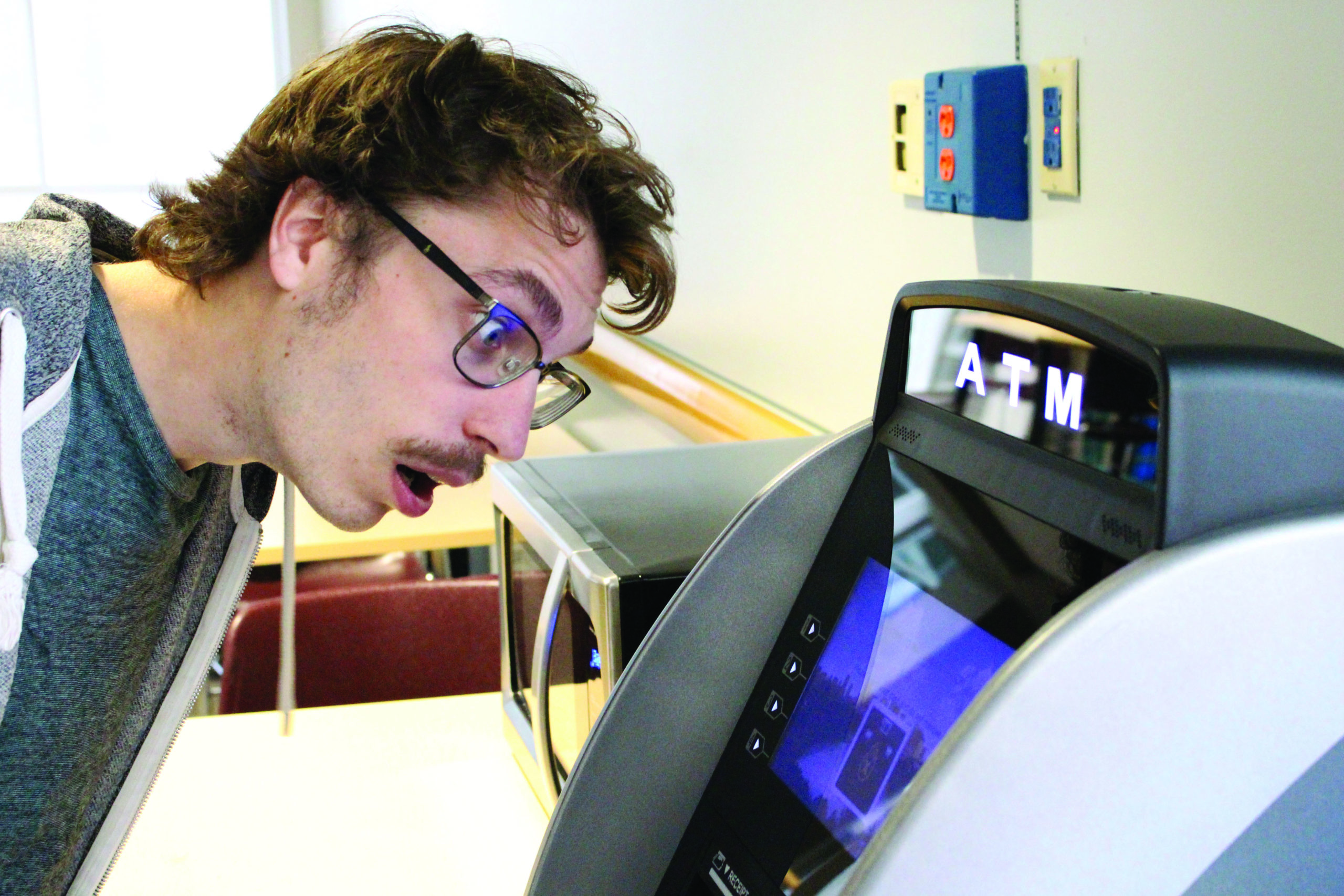According to a 2015 study by the Canadian Centre for Policy Alternatives (CCPA), the average cost of tuition and compulsory fees for an Albertan undergraduate student had increased by 170 per cent since the academic year of 1993-94 — after accounting for inflation. Using data for the 2018-19 year from Statistics Canada, we can see that, though tuition has dropped somewhat since the study came out, it is still standing at a 128 per cent increase from 1993-94.
How did this happen? Is it even that bad though? Why am I charged so much for parking then? What can be done?
A brief history
The CCPA report shows that it was specifically in 1994 that these costs began to soar, and not just in Alberta, but nationwide. In fact, Alberta is fairly middle-of-the-road when it comes to these increases. The average cost of tuition and fees across Canada as a whole has tripled since then, and in Ontario they have increased by a whopping 323 per cent — again, calculated by comparing data from the CCPA report with that of Statistics Canada.
It is impossible to identify all the factors that contributed to the shift in 1994, but one of the most obvious of them was the nationwide trend in cuts to education spending throughout the ‘90s, since such cuts generally lead to schools increasing tuition to make up for the resulting shortfalls in their budgets. A 2009 investigation into the matter published by The Walrus notes that the decision by the Jean Chrétien federal government to cut fiscal transfers to all provinces by $8 billion, or 24 per cent — corresponded directly with provincial-level cuts in many sectors, including education. One notable example was the Ralph Klein administration’s decision to cut post-secondary spending in Alberta by 21 per cent. Overall, the percentage of public spending as a share of university budgets has declined from 77 per cent in 1992 to 55 per cent in 2012, says the CCPA report.
More evidence of the relationship between government spending and tuition can be gleaned by looking at the single exception to the increases: Newfoundland. According to Statistics Canada, average tuition and fees in Newfoundland is sitting at $2,550 — a mere 20 per cent increase beyond inflation from the 1993-94 rate that was documented in the CCPA report. Meanwhile, the report notes that public money accounts for 80 per cent of Newfoundland universities’ budgets, compared to only 58 per cent of Alberta’s.
The next major hit for Alberta was in 2010. Although there was a cap on tuition (but not fees) in place that was intended to limit the amount a university could increase tuition each year, in 2010, “market modifiers” were introduced, which effectively allowed universities to raise program-specific tuition beyond the cap, based on their own assessments of the market demand of different degrees. One dramatic example of market modifiers put to use was documented in a 2018 report from the Council of Alberta University Students (CAUS), a group that is made up of members of students’ associations across Alberta. The document says that “students enrolled in Pharmacy at the University of Alberta saw an increase of $3,375 — a 65 (per cent) increase in a single year,” in 2014. As well, the fact that the original cap did not apply to fees meant another significant increase in overall education costs: the CCPA report notes that as of 2015 Albertan Universities charged the most in compulsory fees in the country at $1,069 per year on average.
For those of you who understandably decided to skip those last few number-heavy paragraphs, here’s the summary: Cutting public spending while allowing universities to raise prices at-will means university is going to get very expensive very quickly, which is, of course, what happened.
Where we are now
When the Alberta New Democratic Party (NDP) came into power in 2015, one of their primary mandates was addressing the cost of post-secondary education, and so one of the first things the party did was announce a freeze on all increases to tuition and fees for the years 2015-16 and 2016-17 while a “comprehensive tuition review” was conducted. When those two years were up, the party suddenly realized they hadn’t quite reviewed hard enough, and decided to extend the freeze for another two years. Post-secondary spending was also increased by two per cent over the course of the NDP’s term, which is one possible reason for the recent decline in tuition.
“We will work diligently to make sure that fees do not increase, unless they provide something that’s absolutely necessary.”
— Cole Baker, SAMU vice president external
Eventually, last November, they came out with Bill 19: An Act to Improve the Affordability and Accessibility of Post-Secondary Education, which Cole Baker, the vice president external of the Students’ Association of MacEwan University (SAMU) and a council representative of CAUS describes as a “huge, huge win for students.”
The focus of the bill is a strict cap on annual increases to tuition (but again, not fees). Now, tuition cannot be increased by more than the annual percentage change in the Consumer Price Index (a tool commonly used to measure inflation).
“It makes things much more predictable,” says Baker.
Notably, Bill 19 contains no measures to directly reduce tuition, so barring other factors, it looks like they are going to stay around present levels for the foreseeable future. Regarding fees, the bill requires students to be consulted via students’ associations before any increases are implemented.
“We will work diligently to make sure that fees do not increase, unless they provide something that’s absolutely necessary,” says Baker, “and that will only be decided after proper consultation with the students who are impacted.”
“Instead of the institution taking that decision upon themselves and increasing it, (now) there are checks and balances that the Students’ Association can conduct,” she says.
What’s in store
Technically, the freeze is still in place, since Bill 19 does not go into effect until the fall of 2020. Functionally, this just means that costs stay the same for now, but the bill ensures that students do not see a big jump once the freeze is lifted.
CAUS, meanwhile, will be turning its attention to tuition for students from other countries attending school in Alberta.
“We’re going to have a major focus on international students this year, because that’s a voice that often goes unheard,” says Baker, “but it is completely valid, and deserves to be heard.”
Baker estimates that international students pay “on average $18,000” in tuition and fees per year, “which is ridiculous,” she says. Because Bill 19 does not include measures to directly reduce costs, it does not do anything to address this disparity. As well, the cap on annual increases only applies to international students for the “standard length of their programs,” says the Government of Alberta website, which may cause issues for some.
“Yes there’s the clarity of how much you’re going to pay coming in to your degree,” says Baker, “but if you take longer than four years, it renews, and then you can get those unregulated increases.”
Baker also wants to spend some time on a more MacEwan University-centric issue: parking. Expensive parking was a problem raised by many students last year, who currently pay $12 an hour for the parkade and $7 an hour for the surface lots — during daytime hours when rates are the cheapest. Using the parkade in the evening costs $30 an hour. There are cheaper daily and monthly rates available, but not so cheap as to be reasonable.
“We’re going to have a major focus on international students this year, because that’s a voice that often goes unheard,” says Baker, “but it is completely valid, and deserves to be heard.”
“That’s something that has been brought up a lot, especially with all the parking that has been taken over by the City, so we’re having many conversations about that, and we’re also looking into issues of transit,” says Baker. “Folks need to be able to get to school. They already pay enough to be here, so they shouldn’t have to worry about that.”
As far as government policy goes, unfortunately there is not much concrete information to go on, as the recently elected United Conservative Party has not yet released a budget. Though having a party in charge that campaigned mainly on not being the NDP could have implications on the recent changes to tuition legislation, they probably won’t be making any announcements until later in the term.
In a statement emailed to the griff, advanced education minister Demetrios Nicolaides says that the government’s general goal with education is “trimming wasteful spending so we can balance our finances,” but declined to give any more specifics.
“We’ll just have to wait and see,” says Baker.





0 Comments